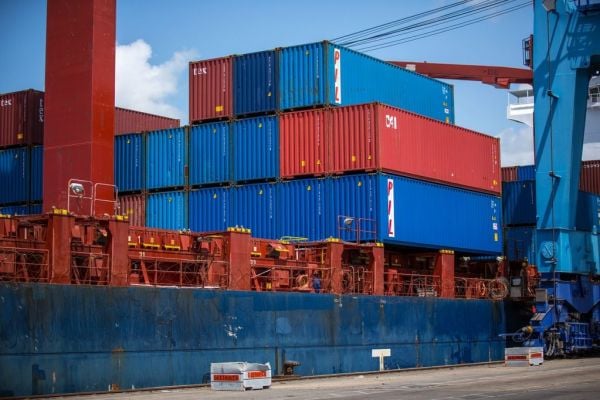To be able to buy and sell goods before needing to pay for them will enhance Irish SMEs’ capacity for international trade ahead of Brexit, writes Mark O’Rourke, managing director, Bibby Financial Services Ireland
It’s well known that Brexit will bring with it considerable disruption for businesses across Ireland.
What is often underappreciated, however, is the extent to which this disruption will disproportionately impact SMEs, and particularly wholesale and retail businesses, given their reliance on imported goods.
Ireland has almost 3,000 wholesale and retail businesses exporting goods to the UK each year, and the vast majority of these employ fewer than 50 people. With tighter margins, these businesses are already more exposed to the current volatility in the currency exchange rate.
This year alone, the Sterling has fluctuated in value from as high as €1.18 to as low as €1.11 in the space of a few weeks.
Facts Of Life
Fluctuation and volatility are facts of life no matter the currency, but the twists and turns of the UK’s Brexit negotiations with the EU have made it a particularly bumpy journey for businesses importing from or exporting to the UK.
On top of the financial complexities, buying goods from overseas also means finding suitable suppliers and ensuring you can sell the goods at a profit, while any delays when buying, taking delivery and selling goods will have a negative impact on a business.
SMEs often do not have sufficient in-house resources to deal with all aspects of what is a complicated procedure.
And, if funds are not readily available at the point of purchase or even when placing orders, a business’s ability to meet its customers’ expectations, or take on lucrative new contracts, can be weakened.
One avenue open to businesses looking to ease any concerns around cashflow when importing and exporting is to avail of trade finance products.
These provide access to all or part of the cash needed upfront, allowing businesses to build trust with new suppliers without leaving themselves exposed to the hazards of international trade.
Typically, the financial provider delivering the product will also cover any duty, VAT and freight costs.
Aside from quick access to funding, our own trade finance product has the benefit of paying suppliers on the same day that goods are shipped, and in the currency of choice, helping to cement those all-important business relationships.
A dedicated team of trade and currency specialists is also available to help SMEs deal with any unexpected issues that may arise.
With the greater flexibility that trade finance offers, it can also be ideally suited to seasonal businesses, or those that receive large, one-off orders that must be quickly filled and paid for.
Breathing Room
While SMEs are often unaware of the range of financial supports available to them, trade finance can therefore offer much-needed breathing room for wholesalers and retailers.
Of course, importing goods for resale also brings with it a number of additional risks, and these can vary depending on which country is being dealt with.
Businesses should be cautious when committing to long-term sales or prices with overseas suppliers, where currency fluctuations may adversely affect costs and margins.
Transport costs can also quickly add up, and the responsibilities of each party for moving goods should be clearly set out in a contract.
There’s also a number of practical steps that can ensure the process of buying goods overseas goes smoothly. Get to know potential suppliers by visiting trade shows to demonstrate commitment and legitimacy.
Similar to doing business in Ireland, it is important to establish how long a supplier has been operating, that they have the relevant rights and permissions to sell and distribute, and their financial background. This can help minimise costly trade disputes and litigation.
Retailers and wholesalers that import from the UK are set to face a higher degree of financial risk once the UK leaves the EU. But by identifying the right supplier, and putting in place suitable measures to protect cashflow, Ireland’s SMEs can continue to thrive and grow their international footprint. Trade finance products, in particular, can prove invaluable in offsetting the damaging effects of currency fluctuation and providing peace of mind to Irish businesses.
About Bibby Financial Services
As a global business with more than 35 years’ experience of supporting SMEs and 40 offices worldwide, for further information click here.









